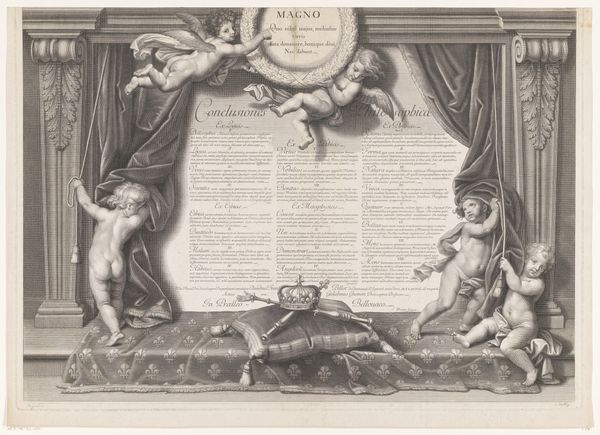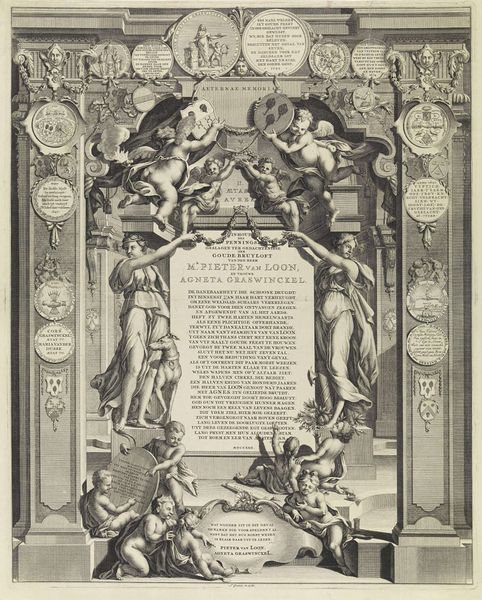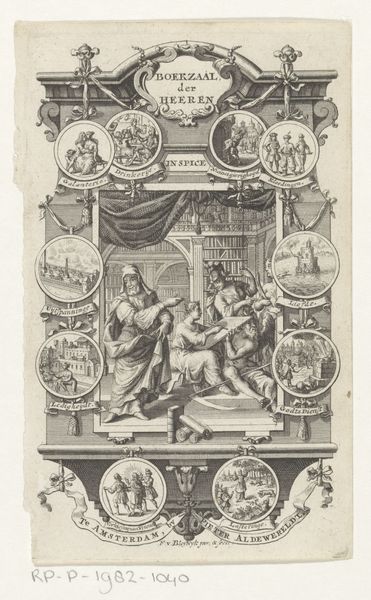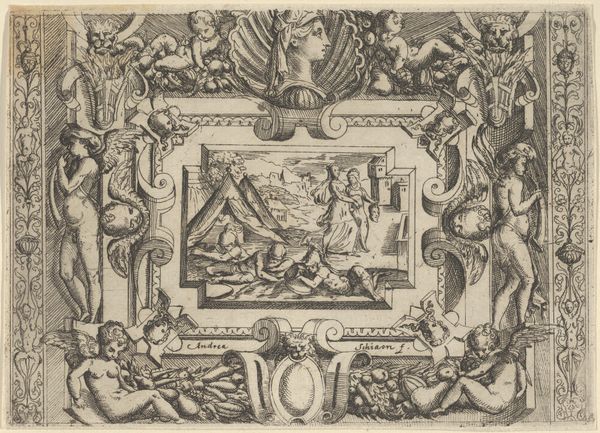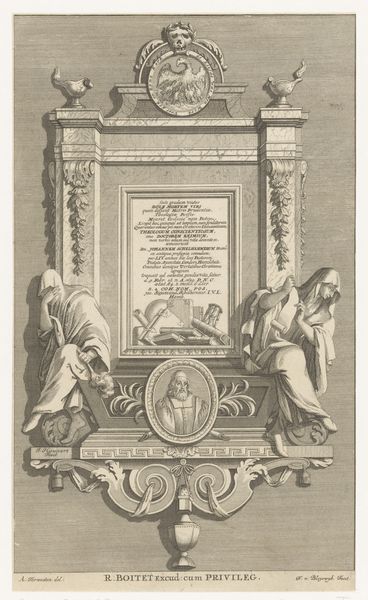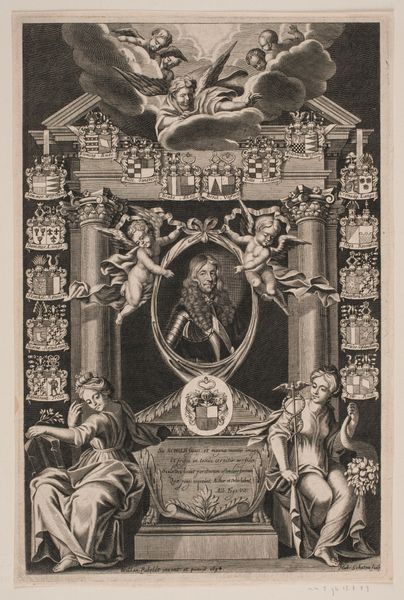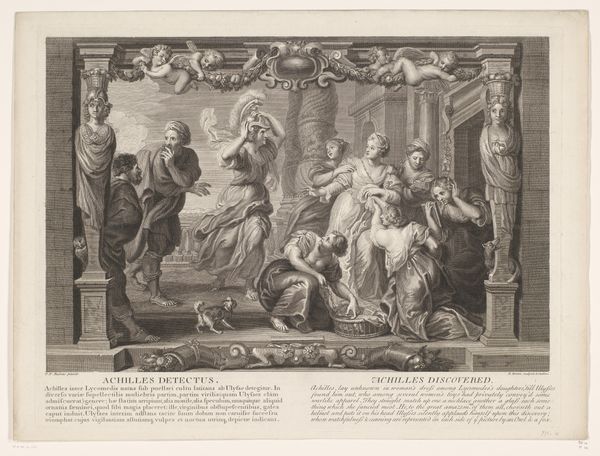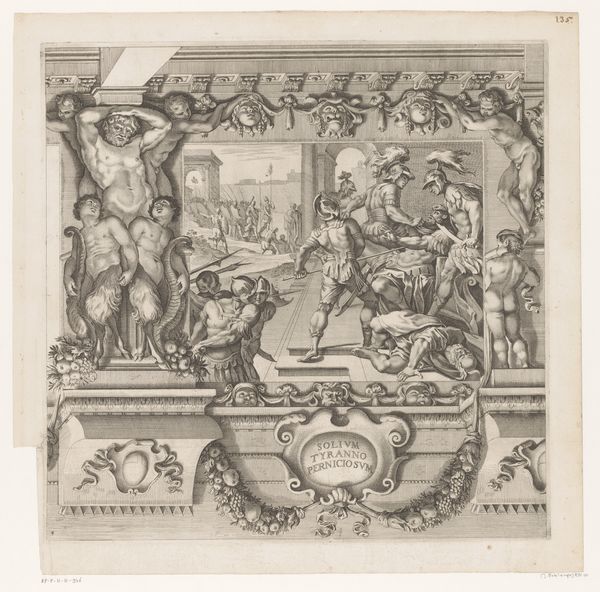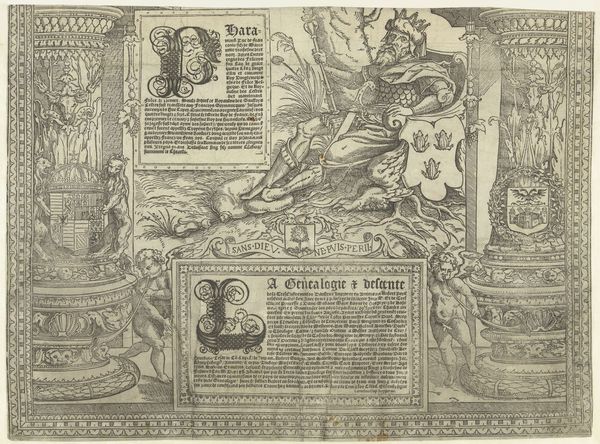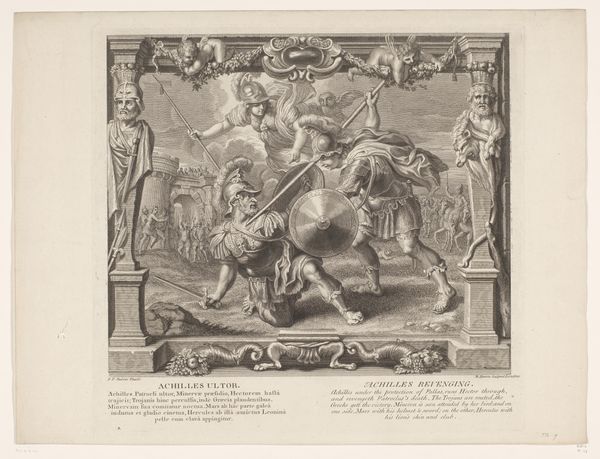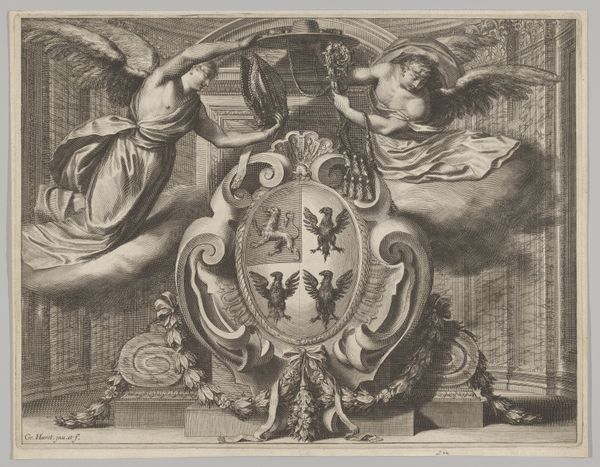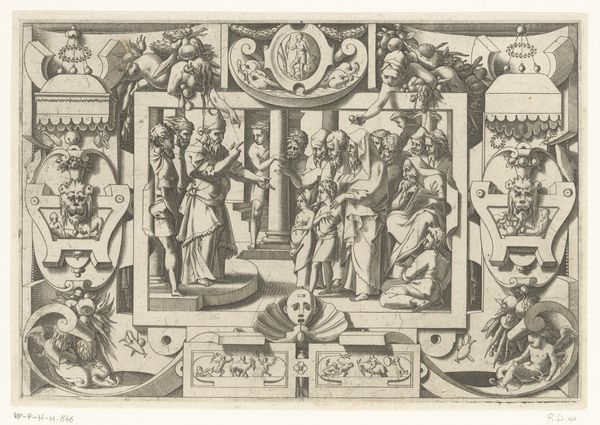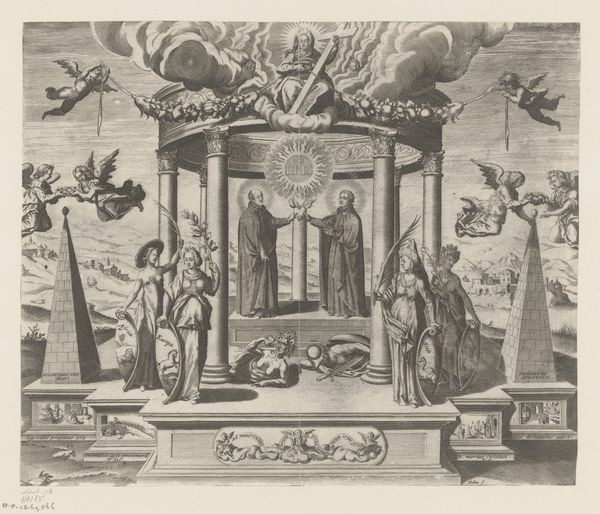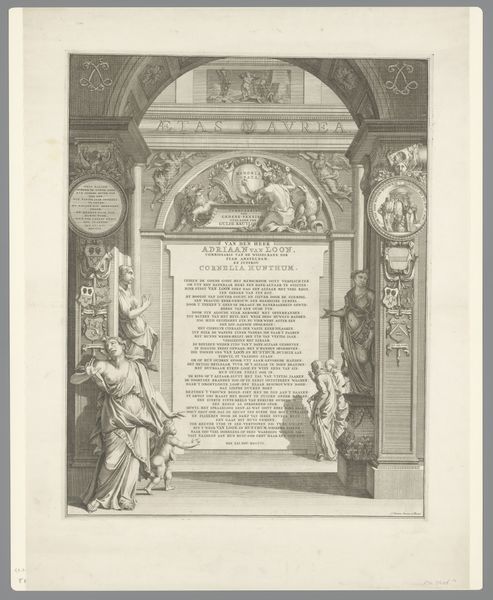
Promotieprent van Ludovicus Nicolaus le Tellier en Ludovicus Franciscus le Tellier 1684
0:00
0:00
print, engraving
#
allegory
#
baroque
# print
#
history-painting
#
engraving
Dimensions: height 655 mm, width 827 mm
Copyright: Rijks Museum: Open Domain
Curator: Jean-Baptiste de Poilly created this print in 1684 titled, "Promotieprent van Ludovicus Nicolaus le Tellier en Ludovicus Franciscus le Tellier." The print is rendered in engraving. Editor: The texture of the engraving creates such a sense of depth, as if a scene has emerged, literally springing to life from the flat surface. I'm struck by its overt grandeur—a tableau almost suffocatingly ornate. Curator: Indeed. Consider the composition—the central text framed by symbolic figures and elaborate ornamentation. Observe how the text itself is rendered almost as an object of reverence, bathed in a visual rhetoric celebrating the Le Tellier family. Note the putti and musical instruments; they contribute to an allegory of power, status, and artistic patronage. Editor: It reads like blatant propaganda—glorifying wealth during a period where France had become completely engulfed in overseas colonization. I’m sure indigenous populations wouldn't share in such a positive representation. I wonder if the "artistic patronage" came at the cost of basic resources for ordinary French people or those affected by colonial exploits? Curator: From a purely aesthetic vantage, the baroque style—with its curves and attention to detail—amplifies the print's dramatic effect, a spectacle carefully composed for maximum impact. It embodies the era’s fusion of art and politics. Editor: Baroque artwork often conceals sociopolitical issues. Perhaps de Poilly hoped that this print could distract and encourage optimism towards French power. Still, you cannot overlook the image's clear goal: to reinforce an existing power structure using aesthetics. It invites questions of privilege and its cost. Curator: It shows us how visual culture of the 17th-century Baroque strategically reinforced societal power and authority. De Poilly expertly utilizes technique to persuade. Editor: Which also reveals a need to persuade and reassure the monarchy's own stature, raising issues of morality for current interpretation. Considering its colonial timeframe, perhaps not something to unreservedly celebrate.
Comments
No comments
Be the first to comment and join the conversation on the ultimate creative platform.
